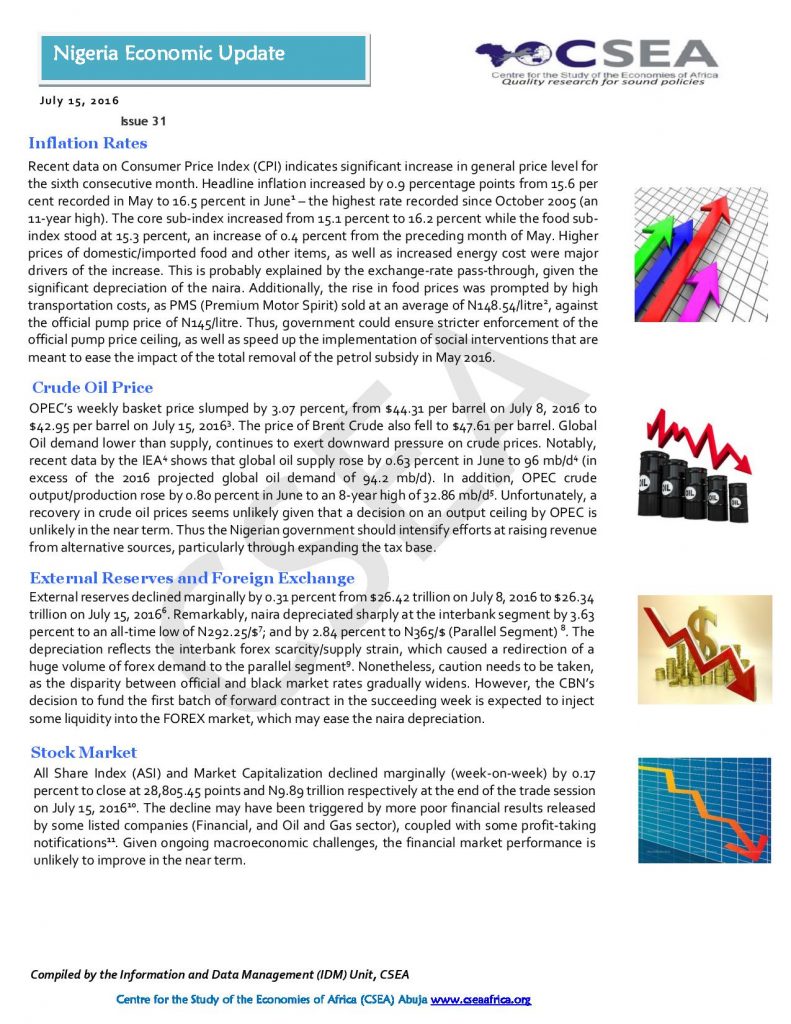Macroeconomic Report & Economic Updates

July 22, 2016
Nigeria Economic Update(Issue 31)
Recent data on Consumer
Price Index (CPI) indicates significant increase in general price level for the
sixth consecutive month. Headline inflation increased by 0.9 percentage points from
15.6 per cent recorded in May to 16.5 percent in June the highest
rate recorded since October 2005 (an 11-year high). The core sub-index
increased from 15.1 percent to 16.2 percent while the food sub-index stood at
15.3 percent, an increase of 0.4 percent from the preceding month of May. Higher
prices of domestic/imported food and other items, as well as increased energy
cost were major drivers of the increase. This is probably explained by the
exchange-rate pass-through, given the significant depreciation of the naira.
